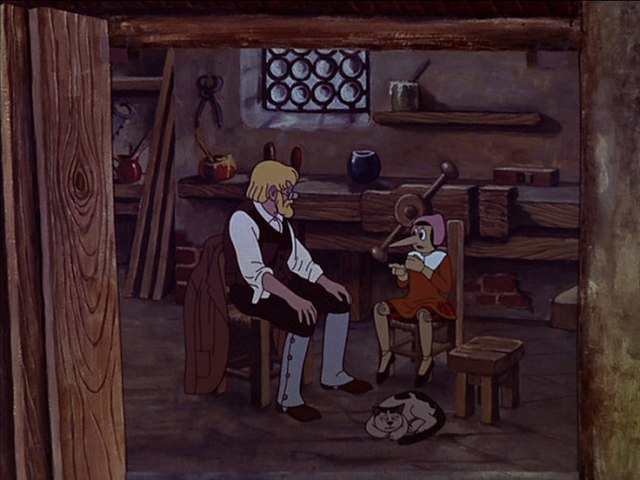The problem with the live-action movie “Pinocchio” is that it doesn’t want to be Pinocchio.
The original novel and 1940s Disney movie are both through-and-through morality tales – Pinocchio makes mistakes, gets punished and learns basic lessons like “don’t skip school,” “don’t lie” and “don’t be lazy.” The new Disney movie wants to be a tale of acceptance, about Pinocchio accepting his marionette state, and becoming accepted by those who love him.
The issue is that as a remake, “Pinocchio” has to follow the plot of a morality tale. The audience going to see the remake has expectations – the Pleasure Island scene, the whale scene, the nose growing scene, etc. Pinocchio doesn’t have to learn anything besides that he is fine as he is, so the plot of the original “Pinocchio,” where he has to learn about the dangers of skipping school and lying, doesn’t work for this film.
This is highlighted by the strange overall message relating to school – originally Jiminy Cricket insists that Pinocchio go to school and that joining a puppet show is an awful idea. But he is kicked out, and joins the puppet show as a back-up plan.
At the end of the show, it is unclear whether or not he becomes real (since with the acceptance of his state it doesn’t matter whether or not he is real), but this would mean he is not able to go to school. Don’t worry though – he’s been invited to work at a…puppet show. This one is unionized!
Another bizarre part of the film is Pleasure Island. In the original book and film, Pinocchio falls into depravity, and learns the valuable lesson of not becoming lazy and falling for immediate pleasure. In the new movie, Pinocchio resists all this, because he is already good, and learns the valuable lesson that sometimes real boys are bad. One could argue that this helps him demystify his goal of being a “real boy” by showing that being a real boy wouldn’t solve all his problems, but using Pleasure Island for that comes with an expense.
In all three “Pinocchio” media, the other children on Pleasure Island are never addressed, and are sold into slavery as donkeys. More strangely, Pleasure Island itself is never addressed, and presumably continues this practice forever. This sort of works in morality tales, where one could argue that this is simply a metaphor for the dangers of being a lazy boy, but in something that is not a morality tale, it works less.
The new “Pinocchio” movie dresses its child actors in street urchin clothing, gives them an island with a way to express their hatred for society and also, infinite food and drink without having to work (keep in mind, this was set in an age of child labor!) and doesn’t question why they might want it. These children are all characterized as mindless, evil-at-the-core, peer-pressuring lazabouts, while Pinocchio is the only Good Boy on the island.
There is so much potential in that plot point for a movie about the cruelty of the world, especially since the earlier parts of the movie deal with the struggles of a capitalist society (Fabiana, a new character, complains about the struggles of having a marionette leg, and having to work in a puppet show with an awful boss). But the movie still wants to follow the plot of the original tale, so everyone on the island turns into a donkey except for Pinocchio, and the movie moves on to the whale.
Overall, “Pinocchio” tries to be too much. It aims to be a tale of acceptance, while also wanting to be a remake of the original “Pinocchio.” It tries to be a tale for modern times while also having plot points from an 1800s morality tale. It wants to have Tom Hanks speak with an Italian accent, while also have him speak in an American accent. This inability to stray from the original movie’s plot leads to it not working as its own film.
I’d recommend the film to those really interested in the story’s transformation over the years, as well as anyone interested in a story where a puppet learns to accept himself the way he is. But it’s not a faithful adaptation of “Pinocchio,” nor a film that can stand on its own.








